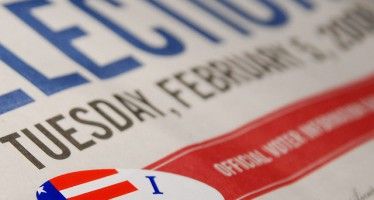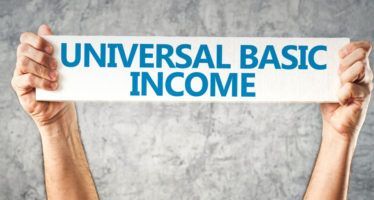CA Unemployment System Is Broke
OCT. 29, 2010
By WAYNE LUSVARDI
U.S. House minority leader Mitch McConnell, R-Kentucky, quipped in June of this year that the only way to solve the chronic national unemployment fund deficit in each state is to pass a bill called “H.R. 4213, The Deficit Extenders Act.”
The continuing insolvency of California’s Unemployment Insurance Benefit (UIB) Fund is not funny to those on unemployment or employers who must pay the benefits. But California’s compounding budget deficit problems at every level don’t seem to have many solutions other than dealing with them with comic relief.
LAO Report
A new report by the State Legislative Analyst’s Office, “California’s Other Budget Deficit: The Unemployment Insurance Fund Insolvency,” indicates that the State UIB Fund is presently insolvent and will balloon to a $20 billion shortfall by the end of 2011, or about 25 percent of the total annual General Fund Budget for 2010.
In 2009, the State collected about $4.5 billion from employers but paid out $11.3 billion in benefits. California seems to be living out its own budget deficit version of Murphy’s Law in real life: “Every fund that can run a deficit will run a deficit, including the deficit extenders fund.”
The November 2008 special session of the state Legislature produced two bills to solve the UIB Fund problem – SB222 and AB1298 – both reintroduced in February 2009. But typical of California’s political dysfunction of “kicking the can down the road” in hopes of a magic bailout by a recovering economy, neither bill advanced beyond the committee level.
No joke: In a hole? Keep digging!
There is the colloquial joke: “if you are in a hole, stop digging.” But California is in such a hole that there is no way up and it has to keep digging. There may be no new offshore drilling in California but onshore budget drilling continues to find dry holes. Since January 2009, the State Employment Development Department has been plugging the deficit with quarterly loans from the Federal government. But the provision of the Federal American Recovery and Reinvestment Act of 2009 delays the payment of interest until Dec. 31, 2010. When this expires California will again have to resume digging a hole of about $500 million in interest on top of the $20 billion principal owed by September 2011 and increasing each year thereafter.
What to do? Raise taxes or cut benefits?
The LAO has an obvious answer: either cut benefits, increase employer payments, or a combination of the two. The LAO says that reducing benefits alone cannot solve the problem. This leaves the only solution of increasing employer contributions by imposing additional taxes. But new taxes will squeeze the state general fund budget further and will squelch any economic recovery. Further federal bailouts are no solution and prolong and deepen the pain.
Faced with the twin horns of a dilemma of either raising taxes or imposing adverse impacts on the economy the LAO advises to avoid harming the economy any further. The LAO is more worried about the growing UIB fund deficit and compounding interest payments than it is with higher taxes.
Going cold turkey off UIB
This means that California may soon be out of political fixes and tax solutions for chronic unemployment. This will take leadership beyond the typical “tax and spend” of the Party of Government” or “do nothing” of the Party of Business. Civic leaders and law enforcement are going to have to start preparing communities for going “cold turkey” off unemployment benefit programs or drastically reducing benefits. The social welfare state my be broke both fiscally and policy-wise.
This will raise a host of new policy questions regarding how state and local governments spend their money. Stay tuned for a contentious debate as state programs such as UIB run out of money.
Related Articles
Popular vote by 2020?
Though it means nothing for 2016, the 2020 presidential election may be decided by popular vote — or at least that’s
Stockton to become first U.S. city to test universal basic income plan
Stockton, California, will soon become the first U.S. city to experiment with a universal basic income program, granting 100 residents
The train that broke California’s back
July 12, 2012 By Chriss Street The state of California was already facing a $19 billion budget deficit, had shorted




